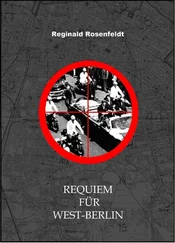Isaiah Berlin - Russian Thinkers
Здесь есть возможность читать онлайн «Isaiah Berlin - Russian Thinkers» весь текст электронной книги совершенно бесплатно (целиком полную версию без сокращений). В некоторых случаях можно слушать аудио, скачать через торрент в формате fb2 и присутствует краткое содержание. Год выпуска: 0101, Жанр: Старинная литература, на русском языке. Описание произведения, (предисловие) а так же отзывы посетителей доступны на портале библиотеки ЛибКат.
- Название:Russian Thinkers
- Автор:
- Жанр:
- Год:0101
- ISBN:нет данных
- Рейтинг книги:3 / 5. Голосов: 1
-
Избранное:Добавить в избранное
- Отзывы:
-
Ваша оценка:
- 60
- 1
- 2
- 3
- 4
- 5
Russian Thinkers: краткое содержание, описание и аннотация
Предлагаем к чтению аннотацию, описание, краткое содержание или предисловие (зависит от того, что написал сам автор книги «Russian Thinkers»). Если вы не нашли необходимую информацию о книге — напишите в комментариях, мы постараемся отыскать её.
Russian Thinkers — читать онлайн бесплатно полную книгу (весь текст) целиком
Ниже представлен текст книги, разбитый по страницам. Система сохранения места последней прочитанной страницы, позволяет с удобством читать онлайн бесплатно книгу «Russian Thinkers», без необходимости каждый раз заново искать на чём Вы остановились. Поставьте закладку, и сможете в любой момент перейти на страницу, на которой закончили чтение.
Интервал:
Закладка:
even to those most mystified or repelled by the content of his preaching.
Few writers would seem to have less in common than Tolstoy, the
fanatical seeker after truth, and Turgenev, a writer of lyrical prose, the
poet of 'the last enchantments of decaying country houses'. But in his
essay on Turgenev Berlin shows that though by temperament he was a
liberal, repelled by dogmatic narrowness and opposed to extreme
solutions, he had been deeply inRuenced in his youth by the moral
commitment of his contemporaries and their opposition to the injustices
of autocracy. He fully accepted his friend Belinsky's belief that the
artist cannot remain a neutral observer in the battle between justice and
injustice, but must dedicate himself, like all decent men, to the search
to establish and proclaim the truth. The effect of this was to tum
Turgenev's liberalism into something quite distinct from the European
liberalism of that time, much less confident and optimistic, but more
modem. In his novels, which chronicled the development of the
intelligentsia, he examined the controversies of the middle years of the
nineteenth century between Russian radicals and conservatives,
moderates and extremists, exploring with great scrupulousness and
moral perception the strengths and weaknesses of individuals and
groups, and of the doctrines by which they were possessed. Berlin
emphasises that the originality of Turgenev's liberalism lay in the
conviction which he shared with Herzen (even though he thought that
Herzen's populism was his last illusion) as against Tolstoy and the
revolutionaries (even though he admired their single-mindedness), that
there was no final solution to the central problems of society. In an age
xxi
RUS SIAN THINKERS
when liberals and radicals alike were complacent in their faith in the
inevitability of progress, when political choices seemed mapped out in
advance by inexorable historical forces-the laws governing economic
markets, or the con8ict of social classes-which could be made to
assume responsibility for their results, Turgenev perceived the hollowness of the certainties invoked by liberals to justify the injustices of the existing order, or by radicals to justify its merciless destruction. He thus
anticipated the predicament of the radical humanist in our century,
which one of the most morally sensitive political thinkers of our time,
Leszek Kolakowski, has described as a continual agony of choice
between the demands of Solltn and Stin, value and fact:
The same question recurs repeatedly, in different versions: how can
we prevent the alternatives of Sollm-Stin from becoming polarizations of utopianism-opportunism, romanticism-conservatism, purposeless madness versus collaboration with crime masquerading as sobriety? How can we avoid the fatal choice between the Scylla of
duty, crying its arbitrary slogans, and the Charybdis of compliance
with the existing world, which transforms itself into voluntary
approval of its most dreadful products? How to avoid this choice,
given the postulate-which we consider essential-that we are never
able to measure truly and accurately the limits of what we call
'historical necessity'? And that we are, consequendy, never able to
decide with certainty which concrete fact of social life is a component of historical destiny and what potentials are concealed in existing reality.
Kolakowski's formulation of this dilemma of our time is surely
valid. Yet Turgenev, a thinker of a very different type, faced it over
a century ago. Before proponents of one-sided visions, conservative
or Utopian, possessed the technological equipment for experiments on
limidess human material, it was not so difficult as it is now to defend
the view that one or other extreme vision, or even a middle way between
them, was the whole answer. Isaiah Berlin has shown that, at a time
when liberals, as well as the ideologists of the left, were still confident
of the sufficiency of their systems, Turgenev had attained a more
complex vision and had embodied it in his art.
There is no doubt with which of the three figures with whom he
deals in most detail Berlin's greatest sympathies lie. He shows us that,
for all Tolstoy's moral grandeur, his blindness at those moments when
he relinquishes the humane vision of his art for a domineering dogmatism is repellent; and that Turgenev, for all the clarity of his vision, xxii
INTR O D U CT I ON
his intelligence and sense of reality, lacked the courage and moral
commitment which he so much admired in the radical intelligentsia:
his vacillation between alternatives was too often a state of 'agreeable
and sympathetic melancholy', ultimately dispassionate and detached.
It is with Herz.en that Berlin has the greatest affinity (although he
points out that there was substance in Turgenev's assertion that
Herzen never succeeded in ridding himself of one illusion- his faith i n
the 'peasant sheepskin coat'); he ended his Inaugural Lecture, 'Two
Concepts of Liberty', with a quotation from an author whom he did
not identify: 'To realise the relative validity of one's convictions and
yet stand for them unRinchingly, is what distinguishes a civilised man
from a barbarian.' Herzen, who, as he shows, had the subtle vision of a
Turgenev together with a self-sacrificing commitment to the truth
which was the equal of Tolstoy's, was in this sense both brave and
civilised. In his understanding that 'one of the deepest of modern
disasters is to be caught up in abstractions instead of realities', he
possessed to a very high degree that consistent pluralism of outlook
which for Berlin is the essence of political wisdom.
It is often said of the Russians that their national peculiarity consists in
expressing in a particularly extreme fashion certain universal characteristics of the human condition; and for many the historical significance of the Russian intelligentsia derives from the fact that they embodied the human thirst for absolutes in a pathologically exaggerated
form. Berlin's essays present us with a very different and much more
complex interpretation of the intelligentsia's 'universality', showing
that for a variety of historical reasons they embodied not one, but at
least two fundamental, and opposing, human urges. The urge to assert
the autonomy of the self through revolt against necessity continually
clashed with their demand for certainties, leading them to sharp
perceptions of moral, social and aesthetic problems which in this
century have come to be regarded as of central importance.
That this aspect of their thought has aroused so little attention in
the west is due in some measure to the glaring intellectual defects of the
writings of most members of the intelligentsia. The repetitiousness, the
incoherence, the proliferation of half-digested ideas from foreign
sources in the writings of men like Belinsky, together with the political
disasters for which they are held responsible, have led the majority of
western scholars fervently to echo Chaadaev's famous pronouncement
that if Russia has some universal lesson to give to the world, it is that its
xxiii
R U S SIAN THINKER S
example is at all costs to be avoided. But with an acute instinct for
quality, helped by a total absence of that condescension which is the
frequent concomitant of historical hindsight, Isaiah Berlin has discerned behind the formal shortcomings of the intelligentsia's writings a moral passion worthy of attention and respect. The essays in this book
Читать дальшеИнтервал:
Закладка:
Похожие книги на «Russian Thinkers»
Представляем Вашему вниманию похожие книги на «Russian Thinkers» списком для выбора. Мы отобрали схожую по названию и смыслу литературу в надежде предоставить читателям больше вариантов отыскать новые, интересные, ещё непрочитанные произведения.
Обсуждение, отзывы о книге «Russian Thinkers» и просто собственные мнения читателей. Оставьте ваши комментарии, напишите, что Вы думаете о произведении, его смысле или главных героях. Укажите что конкретно понравилось, а что нет, и почему Вы так считаете.










